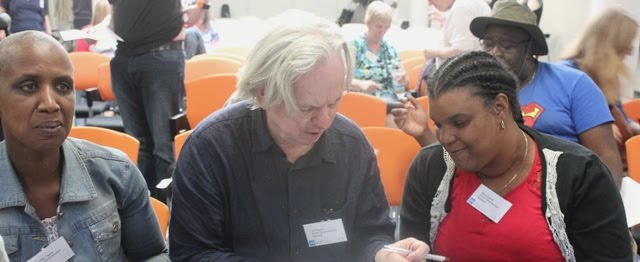By Dr Gary Hickey, Senior Public Involvement Manager, INVOLVE (INVOLVE supports service user and carer involvement research)
 |
| Gary Hickey |
Co-production, as an approach to research, is gaining traction. At INVOLVE, in an effort to move toward clarity on what co-production means to research, we led on the development of some guidance (See here - pdf file) identifying some key principles and features involved in co-producing research. The key principle is the ‘sharing of power’.
The idea is that ‘the research is jointly owned and people work together to achieve a joint understanding.’ Easily said - but how do we achieve this in practice? Research teams are often, and with all best intentions, hierarchical; with a chief investigator leading a team made up of researchers of various grades. And how do we ensure that public members truly have a voice in decision making? How do we also ensure that the knowledge of public members is respected and valued?
We will explore these issues in our second #How2CoPro event, Co-producing Research: How do we share power? on 12th March. Last year the same event was such a success that we are back again with a bigger event and looking forward to learning together once more!
Our key aim for the event is that we all share experiences, and provide practical examples, of how power can be shared in a co-produced project. We will also update you on various co-production initiatives and opportunities that we know of.
At the event we have a range of quality speakers including Simon Denegri (National Director for Patients, Carers and the Public, National Institute for Health Research), who will update on co-production in the National Institute for Health Research; as well as a range of speakers (public members and researchers) who will share their experiences of, and techniques for, sharing power. The event will end with a panel discussion on sharing power and will include SCIE’s Head of Co-production, Pete Fleischmann.
This event is sponsored by: Centre for Public Engagement, Kingston University and St George’s, University of London; INVOLVE; University College London Centre for Co-production in Health Research.
You can register for the event and see the agenda here. Twitter Hash Tag: #howtocopro

